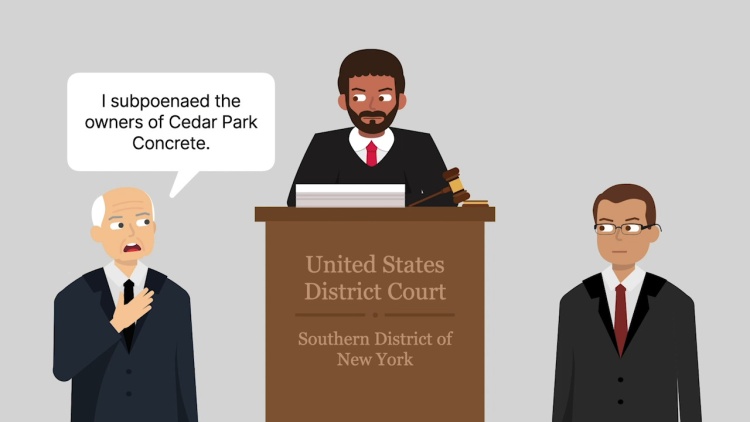United States v. Salerno
United States Supreme Court
505 U.S. 317 (1992)

- Written by Sean Carroll, JD
Facts
Anthony Salerno and six other men (defendants) were charged with violations of the federal Racketeer Influenced and Corrupt Organizations (RICO) Act and other federal crimes based on their alleged involvement in mafia activity. At a grand-jury hearing, two owners of a concrete firm that was allegedly a part of the racketeering ring testified that neither they nor their firm had participated in the ring. However, at trial, the owners of the firm invoked their Fifth Amendment privilege against self-incrimination and refused to testify. As a result, Salerno and the other defendants sought to introduce the owners’ testimony from the grand-jury proceeding under Rule 804(b)(1) of the Federal Rules of Evidence, arguing that the grand-jury testimony fell within the hearsay exception for an unavailable witness's prior testimony. The district court refused to admit the testimony, noting that Rule 804(b)(1) allows testimony to be admitted against a party only if that party had a "similar motive" to develop the testimony. The district court said that a prosecutor's motive in developing testimony during grand-jury proceedings is different from the prosecutor's motive during trial. Salerno and the other defendants were convicted, and they appealed to the United States Court of Appeals for the Second Circuit. The appellate court reversed, holding that the trial court erred by not admitting the grand-jury testimony. The court stated that the similar-motive requirement of the rule does not apply when the government obtains immunized testimony in a grand jury proceeding from a witness who refuses to testify at trial. The United States Supreme Court granted certiorari.
Rule of Law
Issue
Holding and Reasoning (Thomas, J.)
Concurrence (Blackmun, J.)
Dissent (Stevens, J.)
What to do next…
Here's why 907,000 law students have relied on our case briefs:
- Written by law professors and practitioners, not other law students. 47,100 briefs, keyed to 996 casebooks. Top-notch customer support.
- The right amount of information, includes the facts, issues, rule of law, holding and reasoning, and any concurrences and dissents.
- Access in your classes, works on your mobile and tablet. Massive library of related video lessons and high quality multiple-choice questions.
- Easy to use, uniform format for every case brief. Written in plain English, not in legalese. Our briefs summarize and simplify; they don’t just repeat the court’s language.





